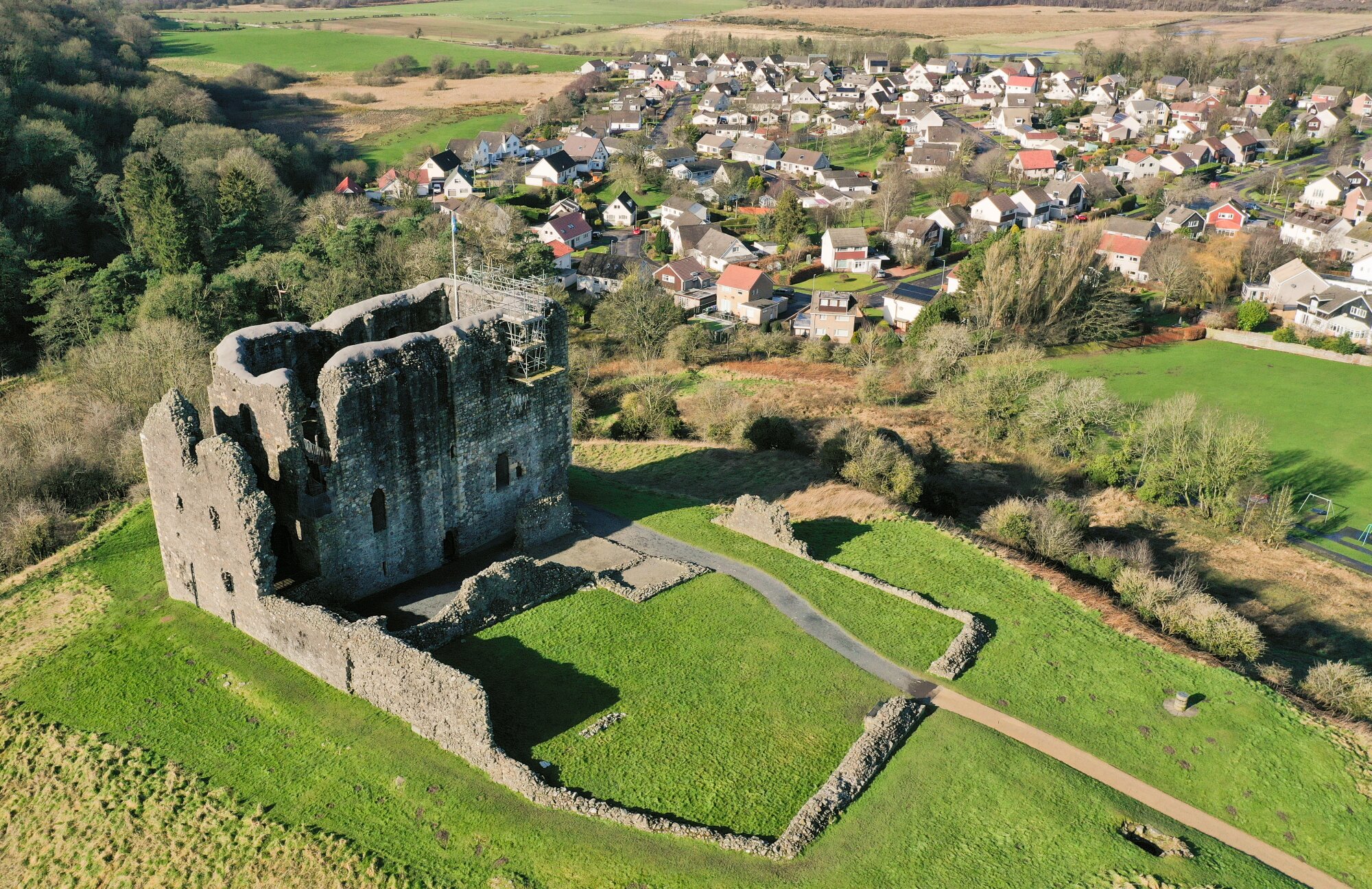
If we see the historic environment as alive and ever-changing, how does that shift our capacity to engage with it? And how can policy and management of the historic environment adapt to community needs, being flexible and resilient in the face of climate change, loss and the ever-changing environment?
These are the questions Dr Audrey Scardina is asking as part of her two-year project at Historic Environment Scotland, which is titled 'The Historic Environment as an agent of change in the climate emergency: a community centred approach', and is funded by the Arts and Humanities Research Council, part of UK Research and Innovation.
Audrey, who is based in HES’s Climate Change Policy team, is one of eight researchers that have been awarded funding through the pilot for Early Career Research Fellowships in Cultural and Heritage Institutions scheme.

Arts and Humanities Research Council Research Fellow Dr Audrey Scardina. Photo V&A.
This scheme is supporting post-doctoral researchers taking up positions within Independent Research Organisations (IROs) like HES. This project has three main objectives:
- Objective 1: Reframe thinking surrounding the historic environment, climate change and community engagement. This will be achieved through fieldwork at Historic Environment Scotland’s Properties in Care
- Objective 2: Create a series of agile, flexible outputs designed to support the evolving management policy and practice for both HES’s Properties in Care and the wider heritage sector
- Objective 3: Generate meaningful impact through furthering discourse within HES, in the heritage sector and in academic circles, and through fostering active relationships between communities and their historic environment
From a sector-wide perspective, this project will support the delivery of Priority 2 of Our Past Our Future – Empowering resilient and inclusive communities and places

The first round of co-creation workshops taking place at Dundonald Castle, held in collaboration with the Friends of Dundonald Castle and the Historic Environment Scotland Climate Change Policy team.
These objectives will also support HES’s Climate Action Plan (CAP) 2020-25. The Climate Impact and Adaptation strand of the CAP states that HES will ‘undertake and support ground-breaking research to better increase knowledge and understanding of the physical, social and economic impacts of climate change on the historic environment’ and will ‘increase understanding of how to proactively manage the loss of heritage assets, including maximising benefits through engagement with communities’.
Audrey will be running of a series of events at HES Properties in Care as part of her work. At each selected property there will be:
- a co-creation workshop to gather community perspectives on climate change, the historic environment and loss. These in-person workshops will run over a couple of hours with a small number of participants. They will result in an output that summarises key themes and takeaways from the workshop
- a collaborative community consultation, where participants of the co-creation workshop and the wider community around the property will have the opportunity to provide feedback on the output created from the co-creation workshops
- an online consultation, open to an even larger audience, which will provide a final opportunity for community feedback
So far, Audrey has run one very successful round of co-creation workshops at Dundonald Castle, in collaboration with the Friends of Dundonald Castle and colleagues from the Climate Change Policy team.
She is currently in the process of planning and scheduling further co-creation workshops over the summer, which, when scheduled, will be listed at the foot of this page.

